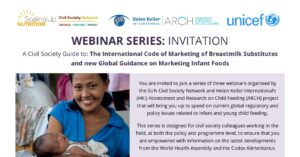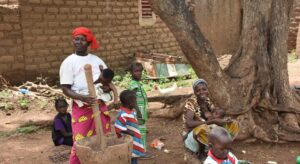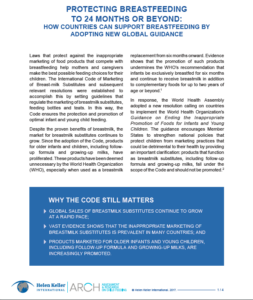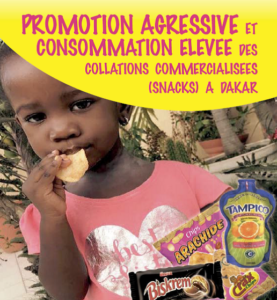Post: A new resource for advocates: webinar series on the WHO Code and global guidance on marketing infant foods
This summer, ARCH partnered with the Scaling Up Nutrition Civil Society Network to host a webinar series on the global policies which protect families against inappropriate promotion of foods for infants and young children. Full video recordings of these webinar presentations are now available for anyone interested in learning about the regulatory and policy environment around…






